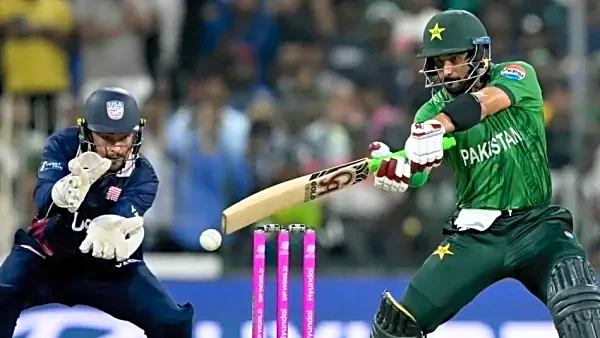Young speedster Harshit Rana batted at No. 7 in the second T20I between India & Australia. He was sent ahead of batting all-rounder Shivam Dube, who walked out to bat at No. 8. Shubman Gill explained the rationale
behind the move after India's four-wicket loss at the iconic Melbourne Cricket Ground on Friday, October 31.
India lost their fifth wicket in the eighth over with only 49 runs on the board. Abhishek Sharma was firing on all cylinders from one end. Harshit joined the Punjab batter in the middle and added a 56-run stand off 47 balls. The 23-year-old scored 35 off 33 balls, hitting three fours and a six. After he was dismissed in the 16th over, Dube lasted just two deliveries as Xavier Bartlett bagged two wickets in three balls.
India were eventually bowled out for 125 in 18.4 overs. Abhishek top-scored with 68 runs off 37 balls, belting eight fours and two sixes.
Harshit had batted No. 9 in the second ODI and scored an unbeaten 24 off 18 balls. ODI skipper Gill shared his views about Harshit's batting abilities after the game.
"With the No.8 position, if a batsman can make 20-25 runs there – which we have confidence Harshit can do – then it becomes a very important position," Gill explained.
Harshit has a first-class century and hit 28 sixes in 14 innings in the red-ball format. Before the second T20I, the youngster had batted just 11 times in 42 T20s, and only once above No.9.
India might have wanted to shield Dube, the more established batter and preserve him for the back-end of the innings, where he could help the tourists add some quick runs with his big-hitting abilities. The southpaw isn't known for having a solid defensive technique, and he could have been found wanting on the spicy deck in Melbourne against the rampaging Australian pacers. Dube edged both deliveries he faced in the innings; one of them went for a boundary through third man, and the other was taken superbly by wicketkeeper Josh Inglis by diving to his left.
While Harshit played an important knock and stitched a significant partnership with Abhishek, he failed to give the opener the strike as much as he would have liked. Out of the 47 balls the partnership lasted, Abhishek faced just 14.
Australia did lose six wickets during the run-chase but raced to the target in just 13.2 overs, with captain Mitchell Marsh top-scoring with a 26-ball 46.

/images/ppid_a911dc6a-image-177075852740281148.webp)



/images/ppid_a911dc6a-image-177075603605816191.webp)

/images/ppid_a911dc6a-image-17707550296985796.webp)



/images/ppid_a911dc6a-image-177075157301840277.webp)
